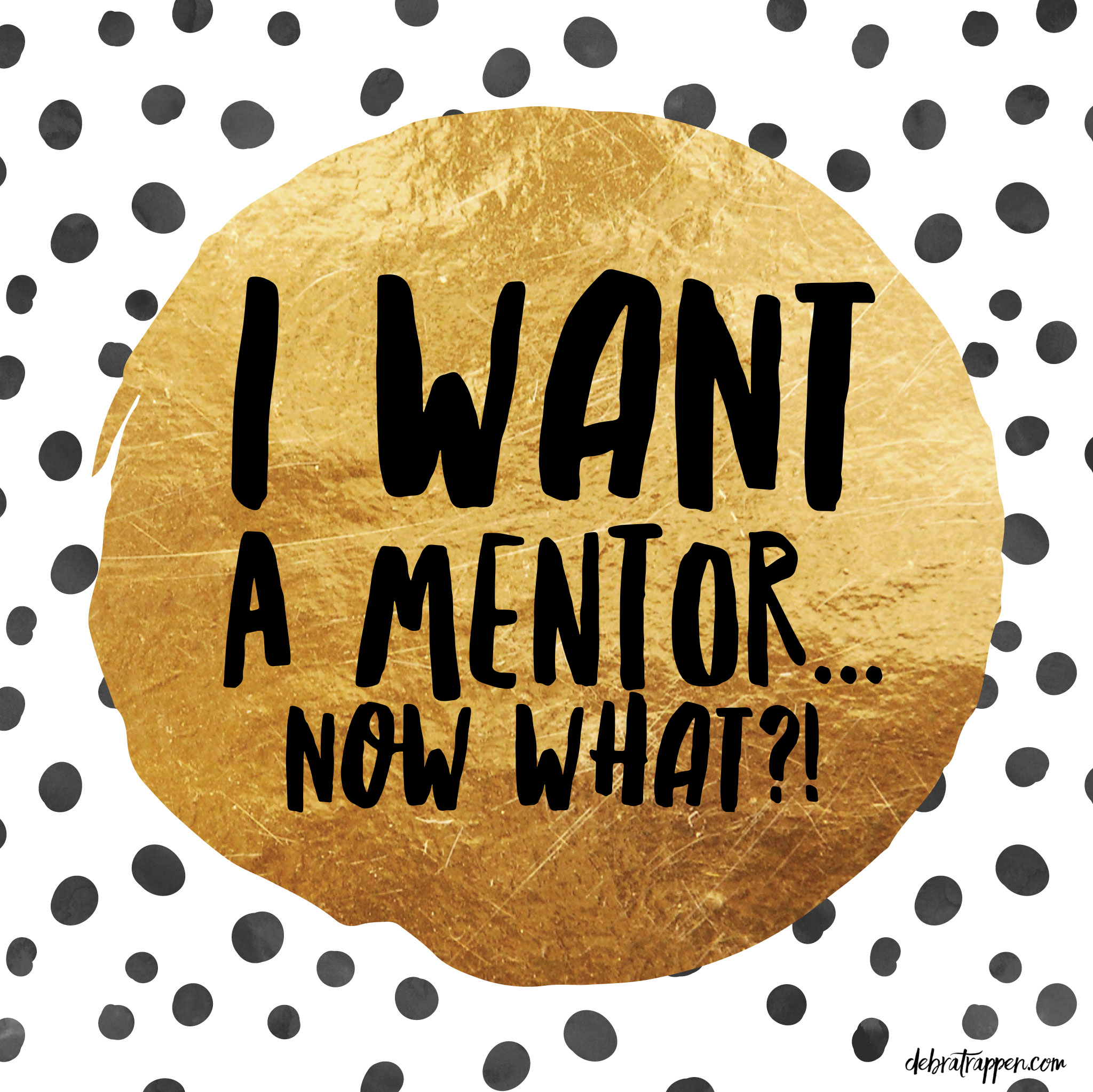We have all heard that mentors are a key ingredient for personal and professional success.
As a protégé (mentee) we learn and grow through our mentors listening, teaching, empowering, and encouraging us. Strong mentors challenge our thinking, inspire us, build our confidence, help us solve problems, and many become role models. Also, important personal and professional connections are made that lead to board positions, promotions, referrals, and so on.
Mentors also benefit greatly from the right protégé. They hone their mentoring and coaching skills, fill their soultank with the satisfaction of “giving back”, and expand their own personal and professional networks through those they mentor. When they engage and get to know the skills of their protégé, they can also gain new knowledge about topics they never knew they didn’t know!
I have put together many mentor programs and partnerships and am frequently asked questions like:
- How do I choose a mentor?
- What questions should I ask?
- How do I prepare for my mentor meetings?
This post shares my tips, tools, and resources on the process of finding a mentor AND being an excellent protégé.
1. Know Yourself
FIRST – define and design the BEST VERSION of YOU. If you have read my past posts here, follow my blog or podcast, or have heard me speak/train – you know THIS is the cornerstone of everything I teach and share. I truly believe that before you can take your life or business to the next level, you must slow down and do some ME work.
Start with these two elements:
A: Know what your core values are.
I covered this in a previous post on eConnect and also shared a core values exercise, just in case you still need to go through that process. Having your core values defined and prioritized makes every decision much easier to make – including WHO your mentors should be and who you should mentor.
B: Know what fills your soultank.
Write a list of 11+ things you love to do for fun, people you love sharing time with, and charities you are passionate about serving. This will not only help you fill your soultank, it will put you in the presence of others who share these things in common with you. Having things you love to do in common will make your mentoring time together even more enjoyable, memorable, and valuable!
2. Define What Success Means To YOU

If you don’t define what success means to YOU, the media, your clients, a friend, even a MENTOR with a very different value structure will define it for you. Before you meet with a mentor – take some time to fill in the blanks:
I am successful when ______________________.
I am successful when ______________________.
I am successful when ______________________.
The above statements will not only guide you and shine a light on what you are slaying… they are also your GUIDE for the topics you should be mentoring others on now.
I will feel successful when ______________________.
I will feel successful when ______________________.
I will feel successful when ______________________.
The above statements contain a wonderful list of topics for which you should be seeking a mentor.
3. Clarify Your Vision
Simply put – why do you actually WANT a mentor? This seems like a silly question, but you REALLY need to know the answer or your mentoring relationships will fail. Period.
Get clarity by asking yourself these questions:
- Am I looking for someone to offer specific advice?
- Do I want someone who is connected to my industry’s influencers and leaders?
- Do I need someone to hear my ideas and fill in the missing pieces?
- Where do I see myself in the 12 months?
- What knowledge, skills, and abilities do I need to get there?
- What key experiences would a mentor have that would benefit me most?
4. Be Intentional And Selective
When looking for a mentor, think beyond current or former bosses or colleagues. You want to be able to discuss current workplace issues, as well as your plans for future advancement. Choosing someone who doesn’t have a direct connection to your past or current employers may make this easier.
People to consider:
- Successful family members or friends
- Spiritual leaders
- Community leaders
- Fellow association members
- Industry influencers/leaders
Ask yourself:
- Are they a HAPPY person? Regardless of their success “on the outside” are they a generally happy soul?
- Do they have a business model or specific success I admire?
- Do they live the kind of life I would like to emulate?
- Do they network (or whatever skill you want to sharpen) like a master and I want to learn how, too?
- Can this person guide me toward my professional or personal goals?
5. Consider Having A Beta Chat

Not sure about the person you are thinking about for your mentor? Before asking someone to be an official mentor, try a “beta chat” and ask for input on a single specific topic or issue you are trying to solve/resolve.
Then ask yourself:
- Did I feel a learning connection to this person?
- Were they too pushy, not convicted enough, or just right?
- Was their advice good?
- Was it delivered in a way that I understood?
- Did I leave the conversation feeling equipped, confident, and energized?
If the answers are YES, move forward.
If not, move on.
Also, it is important to note THEY may decide they aren’t a fit or interested in moving forward. Please don’t be hurt or offended. Potential good mentors are very busy people and they may not feel ready to commit to being your mentor. You want to know that UP FRONT, not 3 months into your arrangement. Thank her for her time and ask for a referral!
6. Share KEY Expectations
Mentoring can be a weekly coffee, monthly lunch, a quarterly phone call, or a virtual video chat. Thinking outside of your city or region can open up the possibilities of WHO your mentor is, as well!
Ask yourself:
- What do I expect out of the relationship?
- How often do I want to meet?
- Where/how do I want to meet?
- How will I prepare them for each chat?
Once you have found the right person, approach them with a well-developed plan for your partnership. Do your homework and be ready to share your short-term goals, your accomplishments, your major objectives and how/whey you believe they will be able to help you.
 7. Be Prepared
7. Be Prepared
It is likely that the person you are going to ask to mentor you is running a thriving business, excelling in their career, or wrangling a busy home and life. Since one of your biggest responsibilities as a protégé is to make sure you are efficiently and effectively getting what you need from your time together – the initial meeting is your moment to shine.
Consider the following questions to get your relationships off in the proper direction:
- How do I learn best? Reading, observing, doing, or listening?
- What will make our time together a success?
- What do you expect to learn from your mentor?
- How will you know if the relationship is working?
Likewise, ask your mentor questions such as:
- What do you expect from me?
- What is your preferred way of teaching? Writing? Sharing stories? Hands-on? Shadowing?
- What would they like to learn from me?
Fire It Up with these 5 steps when booking a mentor meeting:
1: Secure a date and time for your next meeting or phone chat.
2: Choose the topic you want to cover and the 2-3 questions ready for your chat.
3: Follow up with a calendar request – with the topic and questions IN THE NOTES of the request.
4: Call/email/text (whichever they prefer) the day before to confirm your meeting.
5: Show up (or call) on time. Respecting your mentor’s time is extremely important.
 8. Celebrate Success AND Failures
8. Celebrate Success AND Failures
When your mentor recommends a technique that really worked out for you, let her know. We all love to know we are adding value – especially when our advice was part of someone else’s success.
Take notes along the way and share 2-3 specific success moments! If it didn’t quite work out, talk through how you can tweak the concepts and move forward.
If it didn’t quite work out, talk through how you can tweak the concepts and move forward. Sometimes our failures have MANY MORE rich lessons than the successes. If you have been using a script for weeks with no results, maybe it is time to switch it up or role play to uncover why it isn’t working.
If you don’t tell your mentor it is failing, how will they know how to guide you?
9. Be Helpful
Look for opportunities you can help your mentor. Be thoughtful, ask questions, find out what their hurdles are and fill the need, as appropriate. For example:
- Write them a recommendation on LinkedIn to help them gain visibility.
- Nominate them for an award – local, regional, state, or national.
- Refer them to speak! If you attend an event and you attended a panel they would CRUSH – let the event planner know for next year.
- Does your mentor need to sharpen her technology skills and you are a whiz?
- Has your mentor been trying to get into a local hot spot restaurant and you have a connection?
- In other words, it doesn’t have to be about WORK… it can be about LIFE and FUN!
10. Build A Personal Board of Advisors
 You are absolutely allowed (and encouraged) to have more than one mentor. In fact, I have a personal Board of Advisors and highly encourage you to do the same. Choose different people for different layers of your professional and personal life.
You are absolutely allowed (and encouraged) to have more than one mentor. In fact, I have a personal Board of Advisors and highly encourage you to do the same. Choose different people for different layers of your professional and personal life.
Here are the life layers to consider seeking mentors in:
- Faith (Prayer, Meditation)
- Finances
- Friendships
- Marriage/Relationship
- Environment/Organization
- Healthy Living
- Business Skills
- Fun/Adventure
- Family
- Career
- Creativity
11. Enjoy the journey!
Finding or becoming the best mentor and being an amazing mentee takes time, focus, and practice. Enjoy each meeting and learn from each person along the way. Learning who you best connect with is just as important as learning who you don’t connect with, my friend.
Embrace the journey and HAVE FUN!
It was my heart’s desire to help you put some structure around finding your mentor and truly leveraging and honoring your time together! Have an additional idea or want to chat about this topic? Visit debratrappen.com and fill out the connect form! I look forward to hearing thoughts along your mentoring journeys ahead.
Cheers!


